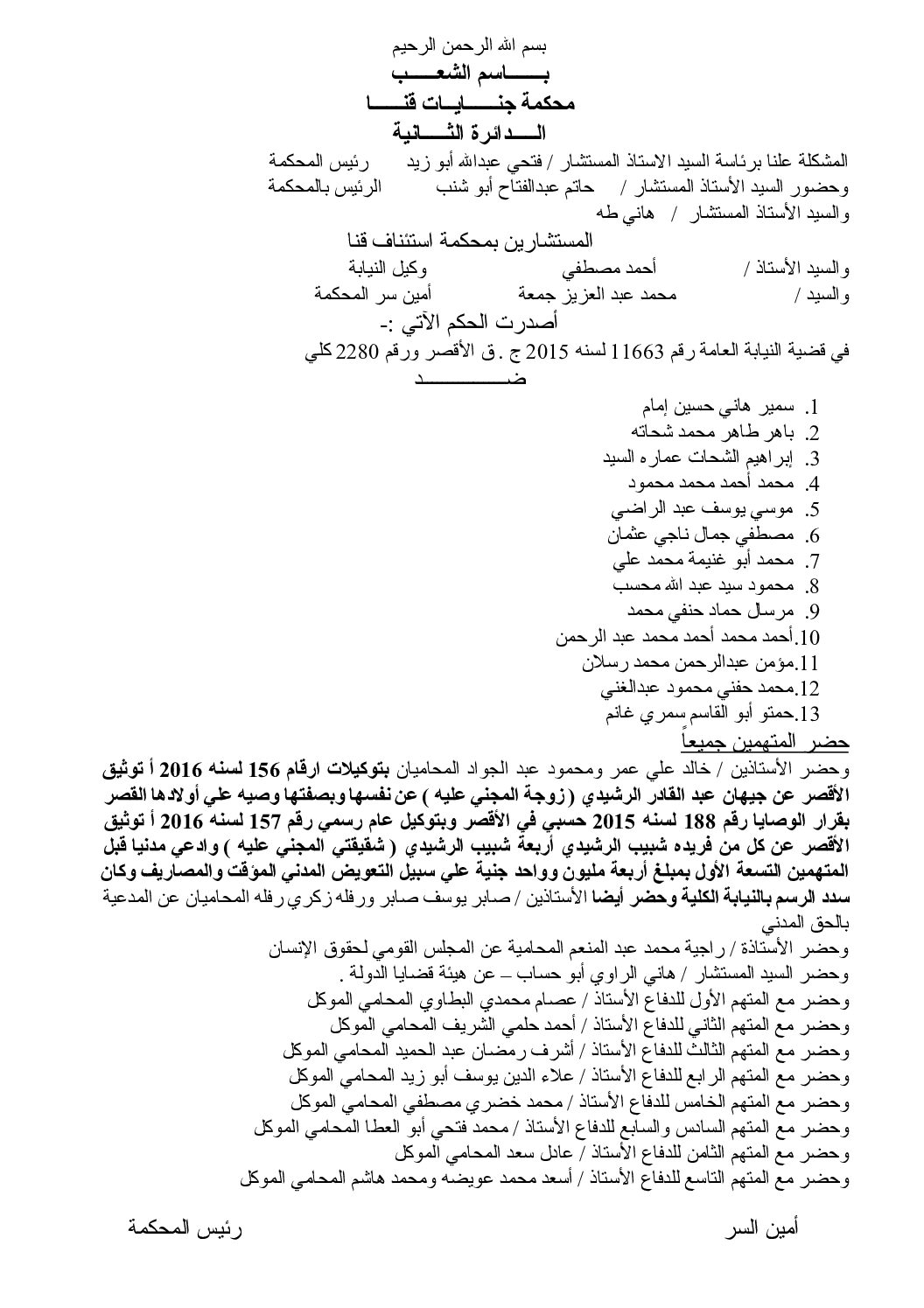ECESR Submits Report to the UN Committee on Economic & Social Rights
The Egyptian Center for Economic and Social Rights presented a submission to the Pre-Sessional Working Group of the of the UN Committee on Economic and Social Rights at its 51st session in May 2013, the occasion of Egypt’s review as a signatory to International Covenant on Economic, Social and Cultural Rights (ICESCR).
The Pre-Sessional Working Group will begin meeting today, 21/5/2013, to discuss the key elements in the situation of economic, social, and cultural rights in Egypt and its compliance with its legal international obligations towards the Covenant. The pre-sessional meeting will be in preparation for the periodic review of economic, social, and cultural rights in the country.
The report provides a summary of the main economic and social problems facing Egypt following the revolution. It raises question to the Egyptian government on economic development plans, social spending on services that affect citizens such as health, education, housing, social security, and others. It also poses questions about current government priorities, pointing to austerity measures as the main feature of policies adopted by governments after the January 25 Revolution, in particular, following the election of President Mohamed Morsi.
The report provides an analysis of economic and social policies in Egypt, particularly in the past year, in light of the Egyptian government focusing its priorities on adopting the recommendations of the International Monetary Fund (IMF). These can be summed up in increasing revenue through raising taxes and the reduction of public spending, especially through the restructuring of subsidies and maintaining reduced spending on basic social sectors, such as health.
The report sheds light on the deterioration of economic and social rights of citizens in the past years, since before the revolution.
Poverty rates grew from 16.7% in 1999-2000 to 21.6% in 2008/2009 and increased further to 25.2% in 2010/2011. Today, over 40% of the population lives on less than $2 a day, while a small elite has amassed a great fortune. It is estimated that 2% of the population controls 98% of the Egyptian economy.
The annual inflation rate rose by 6.6% compared to January 2012. The official state information center, CAPMAS, explains the rise in monthly inflation as resulting from increases in the prices of several commodities: housing maintenance and repair increased by 6.6%, electricity by 5.9%, vegetables by 5.2%, textiles by 4.9%, dairy products and eggs by 3%.
Among other indicators, the report pointed to figures by the Egyptian Food Observatory, which said that 86% of vulnerable households were unable to meet their food needs by the end of 2012. Likewise, figures from the Central Agency for Public Mobilization and Statistics showed that unemployment among women in the workforce were as high as 24% in 2012, compared to 9% for men in the same year. This was in addition to numerous updated indicators, which confirm beyond doubt the sharp decline in access of Egyptians to their economic and social rights and the deterioration of living conditions in the past few years.
The report also discussed the most important legislative amendments revoking rights of citizens. The most important of those was Law No.4 of 2012 known as the law of reconciliation with investors, and Law 34/2011 criminalizing strikes and protest in the workplace, despite the fact that the right to strike is an inherent right guaranteed by various international conventions ratified by Egypt.
The report also highlighted the main rights that have been adversely affected by the passing of the new constitution at the end of last year, such as the rights of children and workers and the freedom to organize, among other rights.
Finally, the report indicated the high number of social protests and its continuing rise, especially after President Morsi took power. The protests, being the highest in frequency around the world, were in response to the deteriorating economic and social situation, on one hand, and the exclusion of citizens from decisions and economic and social plans, on the other.
The Pre-sessional Working Group added the ECESR submission to its references for identifying the key issues that deserve attention in the periodic review of Egypt by the UN Committee on Economic and Social Rights. The report was prepared in partnership with the Center for Economic and Social Rights, an international organization concerned with defending economic and social rights in various countries around the world.
It is worth mentioning that ECESR, in partnership with several human rights, development, workers, and youth organizations, is currently preparing a shadow report to the UN Committee on Economic Social and Cultural, in parallel with Egypt’s periodic review next November.

